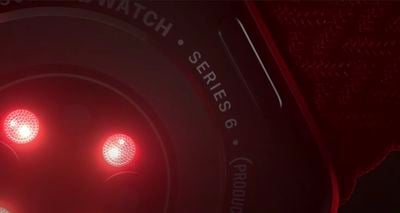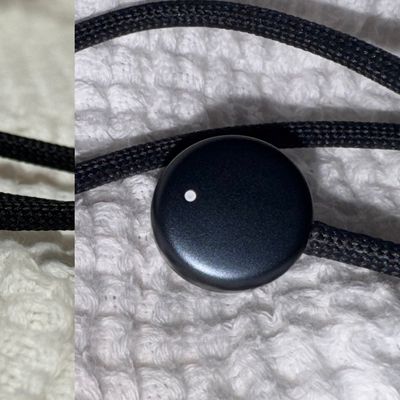Apple has developed a first-of-its-kind hydration sensor designed for the Apple Watch, a company patent filing has revealed.

The patent, first spotted by Patently Apple, is titled "Hydration measurement with a watch" and was granted by the U.S. Patent and Trademark Office.
"Traditional techniques for tracking hydration are generally invasive, expensive, or unreliable," according to Apple. This refers to existing ways of determining hydration such as single-use tests of fluid samples.
Apple's hydration sensor takes the form of non-invasive electrodes that are placed against the skin, which it describes as a "reliable and elegant" solution. The sensor works by measuring the electrical properties of the Apple Watch wearer's sweat. The patent explains:
The electrical properties, such as electrical conductance, can represent a concentration of electrolytes in the perspiration, which in turn represents a hydration level of the user.
[...]
For example, a high level of electrical conductance of the perspiration can indicate a high concentration of electrolytes and a low level of hydration. By further example, a low level of electrical conductance of the perspiration can indicate a low concentration of electrolytes and a high level of hydration.
The filing goes on to give a lengthy and detailed technical description of the hydration sensor and its functionality.
Apple says that its hydration tracking system can be performed "non-invasively, repeatedly, accurately, automatically, and with minimal user intervention." According to the patent, hydration data may be used to provide feedback to the user, particularly during activity such as workouts, and encourage better management of water intake, and in turn, overall health. The filing outlines why hydration is a valuable health metric:
A user's hydration level has significant impacts on the health of a user. Dehydration can impair performance and is associated with several deleterious health consequences, including heat strokes. Overdrinking can result in hyponatremia, fatigue, confusion, coma, and even death.
Patent filings cannot be taken as firm evidence of Apple's plans, but they do show the company's areas of research. Nevertheless, Apple is known to have ambitious plans for adding new health tracking capabilities to the Apple Watch following the debut of blood oxygen monitoring with the Apple Watch Series 6 and hydration monitoring now appears to be a viable option for the company to add to the device in the future.























